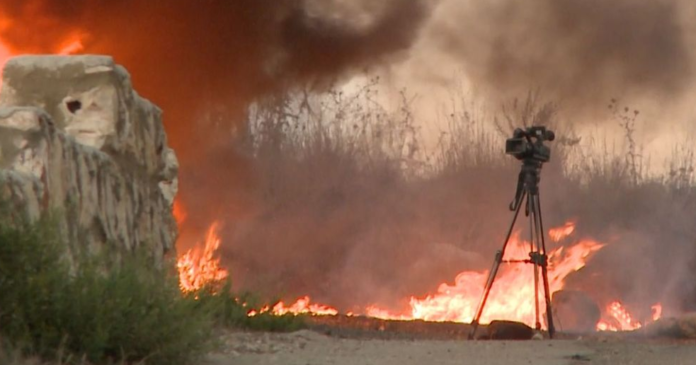An in-depth investigation conducted jointly by Agence France-Presse (AFP) and Airwars has identified a significant development in the tragic incident that occurred on October 13 in southern Lebanon, resulting in the death of Reuters journalist Issam Abdallah and injuries to several others, including two from AFP.
The investigation points to a 120-mm fin-stabilised tank shell of Israeli origin as the munition responsible for the fatal strike. This type of shell is exclusively used by the Israeli army in the highly tense border region where the incident occurred. The findings are based on expert munitions analysis, satellite imagery, eyewitness testimonies, and video recordings captured before and during the attack.
Key conclusions from the investigation include:
- The munition that killed Issam Abdallah was definitively identified as a 120-mm Israeli tank shell, distinguishing it from any munitions used by other groups in the area.
- The strikes were deliberate and targeted, occurring within 37 seconds of each other and directed at a group of journalists clearly identified as press and stationed away from any military activities.
- Evidence suggests the strikes originated southeast of the journalists’ position, near the Israeli village of Jordeikh, where Israeli tanks were known to be operating at the time.
Separate investigations by Amnesty International and Human Rights Watch (HRW) have echoed AFP’s findings regarding the type of munition used and the circumstances surrounding the attack. Both organizations have characterized the incident as a potential war crime and called for thorough investigations into the matter.
Lebanese authorities, including Prime Minister Najib Mikati, have pledged to incorporate the investigation’s conclusions into their complaint before the UN Security Council.
The Israeli military, in response, expressed regret over the journalist’s death and stated that the incident is currently under review.
AFP’s Global News Director, Phil Chetwynd, emphasized the organization’s commitment to pursuing justice for the victims, stressing the need for transparency and accountability from the Israeli authorities.
The incident occurred against the backdrop of heightened tensions and cross-border clashes between the Israeli army and armed groups in southern Lebanon, underscoring the dangerous conditions journalists face while covering conflict zones.
The investigation continues as international scrutiny mounts on the circumstances surrounding Issam Abdallah’s tragic death and the broader implications for press freedom and safety in conflict zones.



